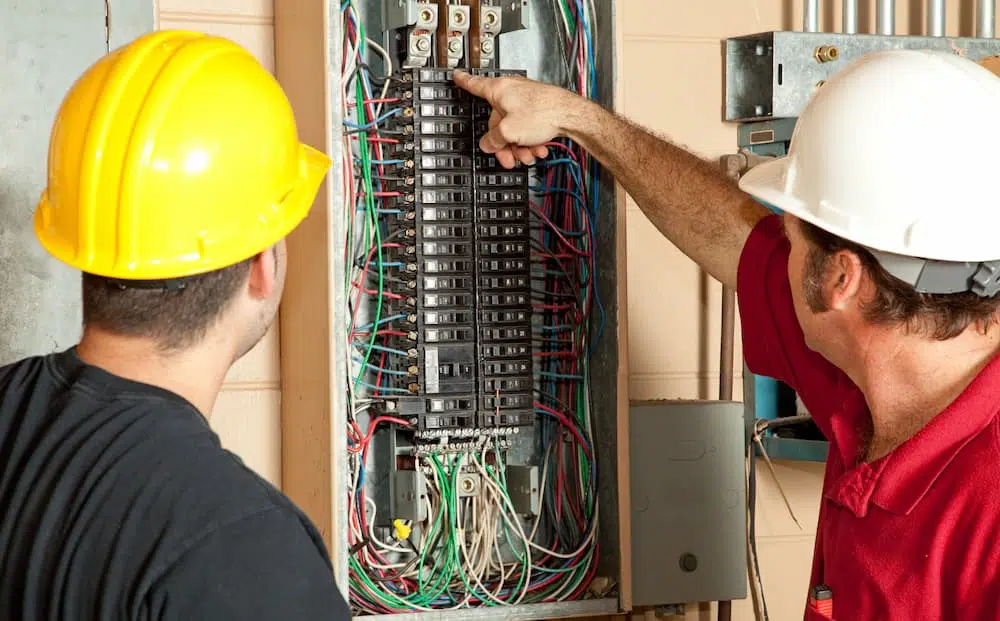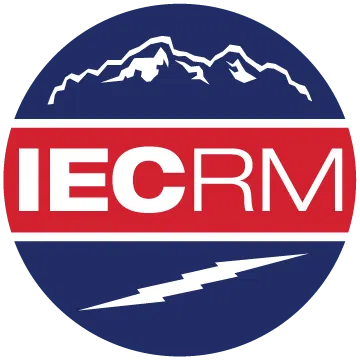How to Get a Journeyman Electrician License

The process can seem daunting if you aspire to become a journeyman electrician. However, obtaining a journeyman electrician license is crucial for experienced electricians looking to enhance their skills and take on more complex electrical projects.
We’ve compiled a comprehensive guide to help you navigate the steps needed to get your Journeyman Electrician career started or advanced.
Journeyman Electrician License Requirements
Check Your State’s Requirements for Electricians
The requirements for becoming a licensed electrician vary slightly from state to state. For example, Colorado requires applicants to be at least 18 years old and have at least 8,000 hours of documented experience working with electricity, while Wyoming requires applicants to have at least four years of experience and 576 hours of apprenticeship schooling from an approved Department of Labor school. It’s best to check with your local and state government before beginning the application process.
Gather Necessary Documents
In addition to meeting any required qualifications, applicants will also need to gather various documents in order to qualify for licensure. This can include professional liability insurance, work references or verifications related to previous education or employer experience, technical knowledge and field training documentation, and any other documents relevant to pertinent certifications or continuing education courses completed.
Apply for Your License
Once you are sure that you meet all of the necessary requirements and have gathered the required documents, it’s time to apply for your license. Applications can generally be found online, or requested in person from either your city hall or another corresponding local agency. Make sure that you double-check that your paperwork is complete before submitting it. Some states require the notarization of licensing applications as well as other forms of authentication prior to granting authorization.
Take an Exam
Most states commonly require electricians to take a certification exam prior to becoming a journeyman licensed electrician. The actual test differs by each state but usually covers topics such as electrical theory, safety regulations, blueprint reading, and other essential skills relevant to this job position. You may need to contact your state or local jurisdiction in order to confirm the exact exam requirements and standards.
Renew Your License Regularly
Journeyman licenses need renewal every two years after initial licensure depending on region (in most cases). When renewing license leads, applicants may also be asked to verify their knowledge through continuing education courses. Once again, make sure to check the necessary renewal requirements. In conclusion, while becoming a licensed journeyman electrician takes effort, the results will pay off: if done correctly, you gain a skill set to handle higher-level aspects of the job itself.
The Journey to Becoming a Journeyman
Are you a skilled tradesperson looking to take the next step in your career and advance from an apprentice to a journeyman? Becoming a journeyman can initially seem daunting, but with hard work and dedication, it is likely an achievable goal.
Gain Abundant Work Experience as an Apprentice
The first step of the journey to becoming a journeyman is to gain sufficient work experience as an apprentice. Working under the guidance of a veteran tradesperson allows you to gain practical, hands-on knowledge of the trade and build a wide range of technical skills. In most states, apprenticeships are completed through formal training programs lasting around two or more years.
Undergo Continuing Education in Your Trade Specialty
Even after completing your apprenticeship program, additional educational material must be covered before taking the journeyman certification exam. Many local trade schools offer continuing education courses tailored to each trade specialty, teaching more advanced material not covered during the apprenticeship program and helping prepare one for the certification exam.
Take and Pass the Journeyman Exam
Once an apprentice has completed their continuing education classes, they can take their state’s journeyman certification exam, which usually consists of written and practical sections. Passing this test allows one to officially become certified as a journeyman in their particular trade specialization. This is necessary if one wishes to find higher-paying positions within their chosen field, since most companies look for qualified professionals with official certifications in their specialty when seeking them out for open positions.
Continue Working Towards Specialization
Even after achieving official certification as a journeyman, it’s important for skilled tradespeople to continue learning about new developments within their chosen field. This ensures that they do not get left behind technology-wise by other fellow workers who might have achieved greater skill levels due to being rooted in higher milestones.
Consistent application of specialization towards actual goals set earlier during peak times while working efficiently at these steps alongside peers who chose similar focus points leads to achieving milestones. These milestones are attained while meeting deadlines collectively throughout all those moments, given such optimizations taken into account over time until now.
Working as a Journeyman: What to Expect
If you’re an experienced tradesperson, you may have considered a career as a journeyman. Journeymen are highly skilled professionals who are responsible for teaching apprentices, while also earning steadier pay because of their experience. A journeyman electrician, plumber, or carpenter is expected to perform tasks that require more skill and knowledge, and be able to work with minimal supervision.
Here’s what you need to know about working as a journeyman:
Get Professional Training
Most companies will require prospective journeymen electricians, plumbers, or carpenters to complete substantial training prior to practicing the trade on their own. The best way to gain knowledge of the trade is through an apprenticeship program where you learn by doing. Many companies sponsor apprenticeship programs for motivated individuals ready to begin a career in the construction trades.
Be Prepared for Long Hours
Being a journeyman requires long hours of hard physical labor in often uncomfortable conditions, so it isn’t for everyone. In addition, most employers expect journeymen electricians, plumbers, or carpenters to be available during evenings and weekends in case of customer emergency service requests.
Have Interpersonal Skills
As well as being physically capable of handling long hours of hard work, journeymen must also have strong interpersonal skills when dealing with other supervisors and colleagues on large projects. Working alongside apprentices daily teaches them how important it is to stay organized, as apprentices often look up to the journeymen for guidance and advice on how different tasks should be handled properly and efficiently.
Additionally, they must effectively communicate issues they may encounter verbally, and in written format with coworkers and employers alike so everyone can understand each others’ processes when tackling challenging assignments together.
Be Willing To Learn New Skills
Journeymen must always stay informed about developments in their field so that they can keep up-to-date with the latest technologies used in construction projects. This includes regularly attending seminars, or taking classes that could provide additional insight into the trade industry, as part of the continuous learning process required by many companies hiring such expertise within their team structure.
Focus On Safety Practices
As professionals who deal directly with hazardous materials like high voltage power lines or household supplies connected via pipes filled with various liquids – among others – safety practices should always remain priority number one. This is true while practicing any craft/trade involving these elements, which might put people at risk if not handled properly.
This is relevant in both home-based residential settings and commercial establishments alike. These establishments often feature multiple contractors working side by side towards completion goals, usually under tight deadlines.
Beyond Working as a Journeyman: Taking the Next Step, Contact IEC Rocky Mountain
Whether you’re starting your career as a journeyman electrician or have been in the field for years, IEC Rocky Mountain can help you take that next step. We hope we’ve provided the information you need to contact the International Electricians Council and continue your electrician journey.
Contact IEC Rocky Mountain today and learn more about our offerings. You’ll have access to classes that provide additional prep time before testing day, mentorship programs that offer expert advice in hands-on situations, job placement assistance across many different trades, and much more.
Don’t wait any longer to reach your full potential – get in touch with IEC Rocky Mountain and start your journey toward success today!
Image Source: Lisa F. Young/Shutterstock
